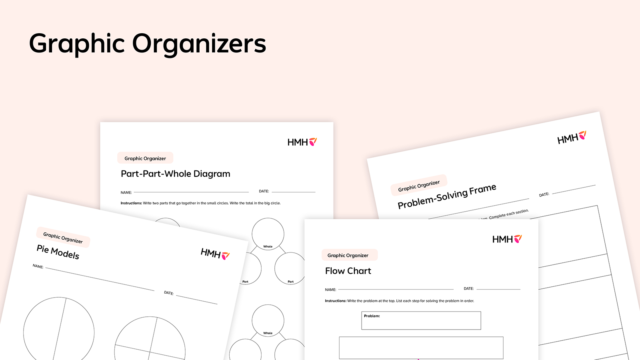
The activities below are all lesson plans that are expected to take one class period to complete. These activities combined could be used as around one week’s worth of lessons. The activities are about geometric probability, data displays, and matrices.
Materials needed
- Each activity includes a student sheet that can be printed and completed by the student, or the student can reference the PDF and write responses separately.
- Each activity also has an answer sheet that provides guidance on the lesson and describes its key concept and questions. Teachers or students can use this sheet to check answers.
- Online or graphing calculator (one per student)
- Paper and pencil
Activity 1: Geometric probability
This activity assumes that students are familiar with finding lengths, areas, and volumes. Students use this knowledge to solve problems such as finding the probability that a randomly chosen point inside a figure lies within a shaded portion or that a bus is waiting at a bus stop when a passenger arrives.
Activity 2: Appropriate data displays
Different data displays have different purposes. This activity digs into the differences and helps students to consider when to use various types of graphs, examine the characteristics that can make a graph misleading, and evaluate data displays.
Activity 3: Matrices
Matrices have a wide range of uses in mathematics. They can represent transformations and can be a convenient tool for solving systems of equations. Use this activity to learn matrix addition, subtraction, and scalar multiplication, with an emphasis on the use of matrices for organizing data.
Extend the lesson: More math activities for Grades 9–12
We are always creating new articles and activities to support students and teachers across all grades and subjects. Check out our latest high school math activities on our blog, Shaped.
***
Engage every student in Grades 9–12 with Into Algebra 1, Geometry, and Algebra 2, our core math curriculum that supports learners in developing conceptual understanding and procedural fluency.
This blog, originally published in 2020, has been updated for 2025.
Be the first to read the latest from Shaped.












